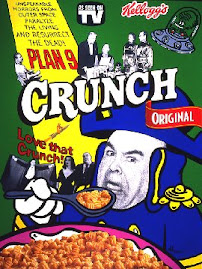I wasn’t going to post a review of Stan and Ollie, the recently released film on the comedy team Laurel and Hardy, but two weeks after I saw it, it still resonates with me. It’s a wonderful, soul-inspiring film of the love and respect the two comic geniuses had for each other, and exemplifies their efforts and dedication to prevail over tough professional odds and poor health.
The film starts with the pair at the height of their fame, making “Way Out West” in the late 1930s and then segues to 1953 in England, and the aging pair’s last tour together. It starts as a disaster, but rallies to success after both subject themselves to a physically grueling publicity campaign. Both harbor a hope, based on flimsy promises, that a film version of Robin Hood awaits them afterward.
The secrets to the film’s success are the stars: Steve Coogan as Stan Laurel and John C. Reilly as Oliver “Babe” Hardy. They are perfect. These are not imitators; they have captured the spirits of the comic legends. After a few minutes you feel you are watching Laurel and Hardy. The classic routines seem as well done as the originals. Coogan has received BAFTA recognition. Reilly, who I think captures Hardy even a tad more than Coogan captures Laurel, deserved an Oscar nomination he did not get.
A couple of scenes help to capture the poignancy of this film. Reilly’s Hardy, desperate to buy his soon-arriving wife a nice jewelry gift, bets on a longshot horse in a shoot-the-moon ploy to gain the money. He rushes to a newsstand for the results. His face falls with dejection as he learns the horse lost. Totally dejected, he spots a group of young fans staring at him. He breaks into character, delighting the fans with his iconic antics.
In another scene, Coogan’s Laurel, is sitting in the office of the producer who had claimed he would fund the Robin Hood film. He’s been rebuffed repeatedly but soldiers on, hoping to achieve a goal he knows in his heart is likely hopeless. The producer disrespects him, keeping him waiting for hours, and eventually sends him a flunky to tell him the deal’s off. Despite his despair while waiting, Laurel still has the moxie and enthusiasm to do skits for a cold secretary who doesn’t appreciate the efforts.
Director John S. Baird creates effectively the London of the early 1950s. It’s a great period piece and one appreciates the stark contrasts between the early, cheap digs and theaters of the tour compared to grandeur of the London hotel and West End theater later in the tour. Shirley Henderson (Moaning Myrtle of Harry Potter films), as Hardy’s wife Lucille Hardy, and Nina Arianda, as Laurel's wife, Ida Kitaeva Laurel, are both very good in their roles. They share tender scenes with their husbands that show the love and support in the marriages. Rufus Jones is also strong as the supportive, but also flaky and kind of weaselly, producer of the stage tour.
Of course, the bond between the comics as portrayed by Coogan and Reilly seals the deal for this film. I won’t give too much away but Laurel and Hardy fans will shed a tear near the end as the comics gamely try to make it through the grueling tour. Some historical license is taken; a decision by Hardy to act with another partner many years ago supposedly causes Laurel lingering resentment. That resentment didn’t actually happen, but, hey, dramas need conflict, and this apocryphal bit doesn’t wound the film. Danny Huston and Richard Cant have small roles as Hal Roach and comic Harry Langdon, who made the aforementioned film, Zenobia, with Hardy.
This is a beautiful memoir of two iconic stars, with wonderful performances and recreations of classic acts. I’m so happy it’s an unexpected hit in England and even here. Laurel and Hardy more than deserve it. Memo to the BBC: make a similar film about then-faded star Bela Lugosi's final tour of Dracula earlier in the 1950s, which also occurred in England. There's already a fascinating book on it.



No comments:
Post a Comment